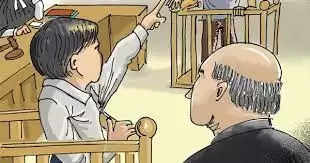Value of Child witnesses under Indian Evidence Act,1872

The term ‘witness’ has not been defined in the Indian Evidence Act,1872 however, upon reading the other sections of the Act we can infer that any person who acts as a source of evidence before the court of law can be considered a witness. Indian jurisprudence has accepted child witnesses as a part of the legal system. The Supreme Court has, on occasion affirmed that the test of competence if satisfied by a child even as young as 5 years old, would allow him to be a witness.
Under Section 118 of the Indian Evidence Act, 1872, there is no minimum age for a witness. Children as young as three years old have been witnessed before trial courts in cases of sexual abuse. Any person may be a witness who can understand the questions put to him and rationally answer them.
In the case of Emperor v Kusha Yamaji Sutar, the Privy council held that:
“the ignorance of a child on such a matter as the nature of a solemn affirmation is not necessarily equivalent to an inability to understand ordinary questions and give rational answers.”
In a landmark case, Suresh vs the state of U.P. the Supreme Court held that testimony of a 5-year-old is admissible as the girl could comprehend and understand the question. The court also said as long as the child is able to comprehend and understand the question their testimony shall be admissible.
In the case of Himmat Sukhadeo Wahurwagh vs State of Maharashtra, the Supreme Court held that the child should be able to differentiate between what is right and what is wrong. He must understand his duty to state the truth and the sanctity of the oath.
Voir dire test:
Under this test, the court puts certain preliminary questions before the child which have no connection with the case, in order to know the competency of the child witness. Some examples of the questions asked under this test can be that regarding their name, father’s name, or place of residence. When the court is fully satisfied after hearing the answers to these preliminary questions, as to the capability of the child to understand these questions and to give rational answers thereto.
